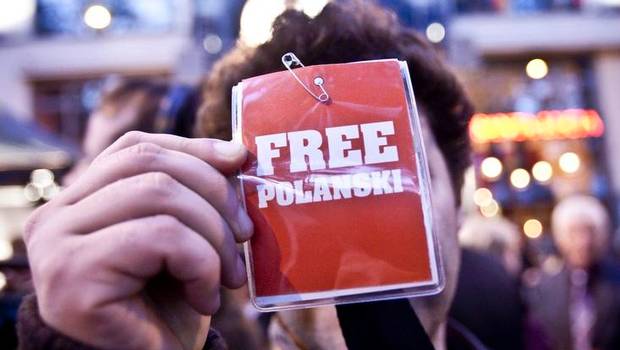Roman Polanski: Odd Man Out
Directed by Marina Zenovich
USA, 2012
It is probably necessary that Roman Polanski: Odd Man Out exists. Once director Marina Zenovich established herself as the definitive documentarian of the famed director’s sexual assault case with 2008’s fine film Roman Polanski: Wanted and Desired, an account of Polanski’s arrest in Switzerland in 2009 and subsequent court battle was inevitable. In fact, as Zenovich points out in Odd Man Out‘s narration, the popularity of Wanted and Desired made her responsible in some degree for the arrest, so this was a film which she had to make. However, it’s more difficult to make this chapter of the story compelling.
The major problem is that there is no counterweight to the issue that in 1977, the 43-year-old Polanski drugged and sexually assaulted a 13-year-old girl, and subsequently admitted as much in court. Wanted and Desired created that counterweight by providing exhaustive proof that, sex offender or no, Polanski received shoddy treatment from the California courts. Odd Man Out tries to create a similar angle by suggesting that Polanski’s arrest only occurred because of fallout from a lawsuit between the U.S. government and Swiss financier UBS, but the connection is so abstract that it feels like an excuse.
The implications of the first film reach into the very core of what makes the American justice system work: that a criminal convicted of a heinous offense should still receive a fair shake. By contrast, is not clear that the second film even has any implications, as it revolves around a painful, ugly debate that most audience members would like to stay away from completely. Wanted and Desired had revealing interviews with people close to the case revealing the existence of judicial misconduct; Odd Man Out has the late, odious Andrew Breitbart suggesting that Polanski return to prison, “bend over and get what’s coming to him.” Classy.
It seems like there’s much more self-interest going on in this film than interest in justice. Zenovich feels some responsibility for Polanski’s arrest, and must also defend herself from a recanted statement from one of Wanted and Desired‘s interview subjects. In his own self-interest, the recanting official offers the hilarious defense that he only lied to Zenovich because he thought no one would see her film. Even the victim has to answer to the appearance of impropriety that comes from accepting a $500,000 payment from Polanski. And of course there is Polanski himself. At times this feels less like a documentary and more like a defense from everyone involved.
Additionally, Odd Man Out is poorly paced. Any outrage that one might have in the film’s first half is likely to dissolve into sleep during the second half. This is not really Zenovich’s fault, as she is trying to provide the definitive account of a process that seems to be an interminable episode of buck-passing from the Swiss courts to the U.S. State Department to the California courts and back again. Polanski stayed in his Swiss cabin under house arrest for the better part of a year, windows shuttered against the cameras of a small army of encamped paparazzi, and there may not be a filmmaker alive who could keep that part of the film from being painfully slow.
In the end, the only moving response to the Polanski case in the entire movie comes from Pierce Brosnan, who acted in the film that Polanski was finishing at the time of his arrest, The Ghost Writer. In a press event related to that film, Brosnan simply acknowledges the ugliness and complexity of the entire situation and wishes for “closure” on the part of all involved. After seeing Odd Man Out, film fans will hope for the same: as dramatic as the case has been, there simply isn’t enough here to make for a second quality documentary.
-Mark Young
The New York Film Festival celebrates 50 years and runs from September 28 to October 14, 2012. For a complete schedule of films, screening times, and ticket information, please see the Film Society of Lincoln Center’s official site.


